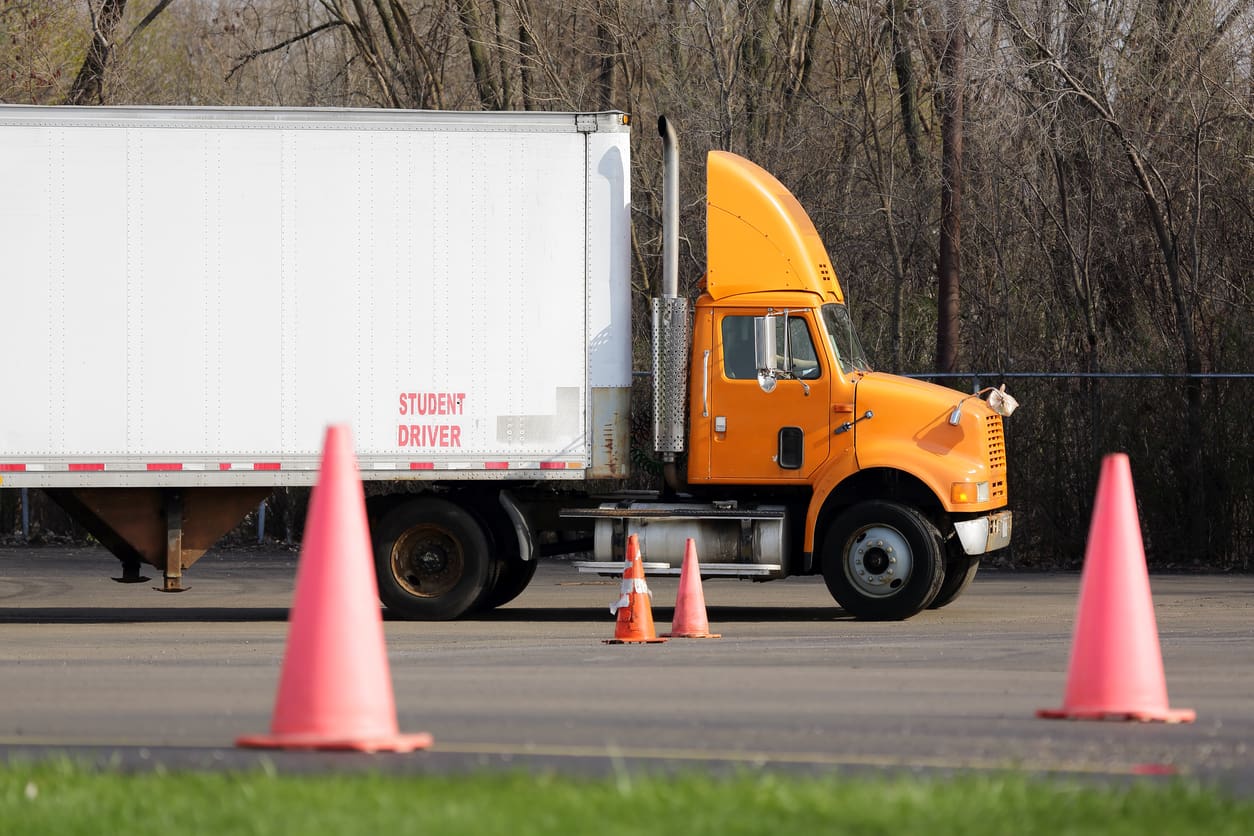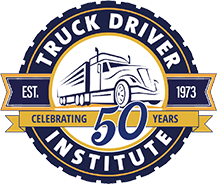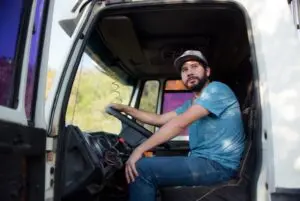What Are Jobs You Need a CDL For?
If you’re considering a career in truck driving, you’re likely wondering what jobs you need a CDL for. You need a CDL to be a bus driver, commercial truck driver, delivery truck driver, and more. However, you’re in luck, once you get your CDL there are endless job opportunities once you attain your CDL. There are three classes of CDL licenses: Class A is for large commercial trucks or combination vehicles with a gross weight over 26,001 lbs.; Class B is for lighter single trucks under 26001 lbs., such as dump trucks or buses; and Class C is for any combination of vehicles not included in Classes A or B definitions.

When considering jobs you need a CDL for, you should get your Class A license. A Class A CDL affords you the most job opportunities even if you want to start small and work your way up. To obtain any CDL license, you must undergo training programs plus pass exams, and get medical evaluations. At TDI, you can get your Class A CDL in just 3 weeks. TDI also helps you get a job before you graduate.
13+ Jobs You Need a CDL For
Truck drivers are individuals who drive large trucks to transport cargo across long distances. They must have a valid driver’s license and be 18 years or older, in some states you must be 21.
To be a successful truck driver, you need to have a high school diploma or GED, be able to pass DOT physical exams for commercial driving licenses, have good communication skills to interact with customers, coworkers, and dispatchers effectively, understand loading/unloading procedures for different types of equipment/goods/materials, etc., possess physical strength and stamina for long hours behind the wheel in varying weather conditions, etc.
Commercial Truck Driver
A commercial truck driver is a person who drives trucks for the purpose of transporting goods and materials. This is likely what you think of when you hear the word truck driver. These drivers are the most likely to do long-haul OTR work.
Commercial truck drivers can take jobs that require anywhere from a few hundred miles to five weeks of driving. These drivers often have to adjust their lifestyle as they travel long distances and may be away from home for extended periods of time. Or, if you’re a regional truck driver you could be home on the weekends. You can work with your carrier to try and get the schedule you want. Commercial truck drivers also transport hazardous materials such as food, medicine, and chemicals which require them to have a CDL license.
Delivery Truck Driver
A delivery truck driver is a person who drives box trucks and other types of vehicles to transport goods and packages from suppliers to customers. This is typically more regional work and not long haul like a commercial driver. Their job is to ensure that the products are transported safely, on time, and undamaged.
To be successful in this occupation, candidates should have good driving skills as well as knowledge of routes and locations where deliveries need to be made. It is also important to have strong customer service skills since interaction with customers is often required. Additionally, applicants should have an understanding of federal regulations related to transporting hazardous materials or products that require special care during transportation.
Bus Driver
Most bus drivers must have a CDL. In order to obtain a CDL with a passenger endorsement, you must pass a written exam and a skills test. The skills test includes an off-street maneuvering exercise and on-road driving.
You must also have at least two years of experience driving a bus. A bus driver’s job is to provide transportation for passengers. They must be able to communicate with the passengers, keep them safe, and ensure that the bus arrives on time. Bus drivers must be able to load and unload passengers quickly and safely. They must also know how to drive a bus in different conditions, such as snow and rain.
Tow Truck Driver
As a tow truck driver, you can handle distressed vehicles, from passenger cars to heavier commercial vehicles. Tow truck drivers need to be adaptable, with mechanical knowledge and the ability to work under pressure. Whether responding to a roadside emergency or recovering vehicles from accidents, tow truck drivers are critical, making it a great career for those with a CDL.
Government Transport Personnel
Government transport personnel are integral to keeping the country’s infrastructure and public services operating smoothly. With a CDL, you can operate city buses, road maintenance vehicles, and more. These positions service the community and are needed by all, making them another great choice.
Emergency Services Driver
These drivers are at the forefront of life-saving operations, operating vehicles like ambulances and fire trucks. These roles require a CDL along with specialized training to help those in need most effectively. Emergency service drivers must work well under pressure, remain calm, and commit deeply to public safety. These drivers are highly respected, and there are significant pathways to growth in this specific field within the trucking industry.
Specialized Hauling
Specialized hauling is a niche in the industry that needs a Class A CDL and specific endorsements. Oversized hauls, hazardous material, or delicate equipment require these additional certifications to ensure drivers understand the ins and outs of this highly specialized role. If you enter this truck driving sector, you can expect to transport unique cargo and contribute to various industries.
Oil & Gas Industry Driver
Truck drivers are essential to the oil and gas industry because they can transport equipment and materials vital to energy production. These roles require drivers to navigate off-road conditions and adhere to strict safety protocols. Due to the nature of these positions, drivers must also undergo additional training. Drivers in the oil and gas industry are the backbone of the energy industry. Due to the specialized nature of this role, drivers in this industry have competitive pay and ample opportunities to work in diverse environments.
Sales Representative
Sales Representatives in the industry use their knowledge to sell services and products that are critical to trucking company operations. Having a CDL for this position can give you a competitive edge by allowing you insights into the needs and challenges of the industry. If you have a CDL but excel in communication and want to be in a fast-paced environment, the sales representative role might be a great choice for you.
Fleet Manager and Dispatcher
Fleet managers and dispatchers help the trucking industry operate by ensuring the vehicles, drivers, and cargo can meet their delivery schedules. Knowledge from a CDL can help people in these positions understand the nuances of trucking operations and enable better decision-making and efficiency. Individuals who thrive in logistical situations, enjoy problem-solving, and keep calm under pressure are perfect candidates for these positions.
Shuttle Driver, Car Hauler, Agricultural Hauler, and Snowplow Operator
This group of professionals all have CDLs and use them daily. These positions offer variety, independence, and the satisfaction of fulfilling a critical need for society to operate smoothly.
Landscaping Businesses, Lineman Work, Moving Companies, and Crane Operator
Drivers in landscaping, utility, moving, and crane operations use their CDLs to operate vehicles and machinery critical to their day-to-day operations. The work is varied and often seasonal, offering opportunities for new challenges and experiences for individuals in these industries.
Truck Driver Instructor
Truck driver instructors are individuals who teach new and experienced truck and trailer drivers how to drive safely.
They may provide information on the types of vehicles available, their capabilities, and how to choose the right one for a customer’s needs. They may also teach students about driving techniques such as lane changes, passing maneuvers, and backing up. Additionally, they may instruct students on safety procedures such as when it is appropriate to pass another vehicle or truck.
Truck driving school instructors need to have a CDL license in order to operate the vehicles they use during truck driver instruction sessions. Many truck driver instructors are retired truck drivers. If you want to stay in the industry but no longer want to drive OTR, you can become a truck driver. There are also many other jobs you can hold in the trucking industry that don’t require you to drive long hours. Click here to learn more about them. If you’re interested in becoming a CDL instructor, come work for TDI!
Get Your CDL In 3 Weeks
Now that you know what jobs you need a CDL for, it’s time to sign up for your CDL. With TDI you can get your CDL in just 3 weeks. Other truck driving schools want to waste your time and money, either by taking too long during training or sending you elsewhere to get your testing done. TDI is your one-stop shop for trucking. We’ll train you and test you all along the way so you don’t have to worry about anything.
Choose one of our amazing 11 locations to get your career started today. You can contact us to learn more about the program or go straight into filling out an application. TDI takes pride in putting great truck drivers on the road.
Get Started
Get your Class A CDL in our friendly, supportive CDL training program. TRAIN with experienced instructors – multiple good-paying, secure job choices with benefits available for eligible graduates. EARN $700 – $1000+ / week to start as a truck driver. Get started today by filling out the form below. We look forward to hearing from you!



